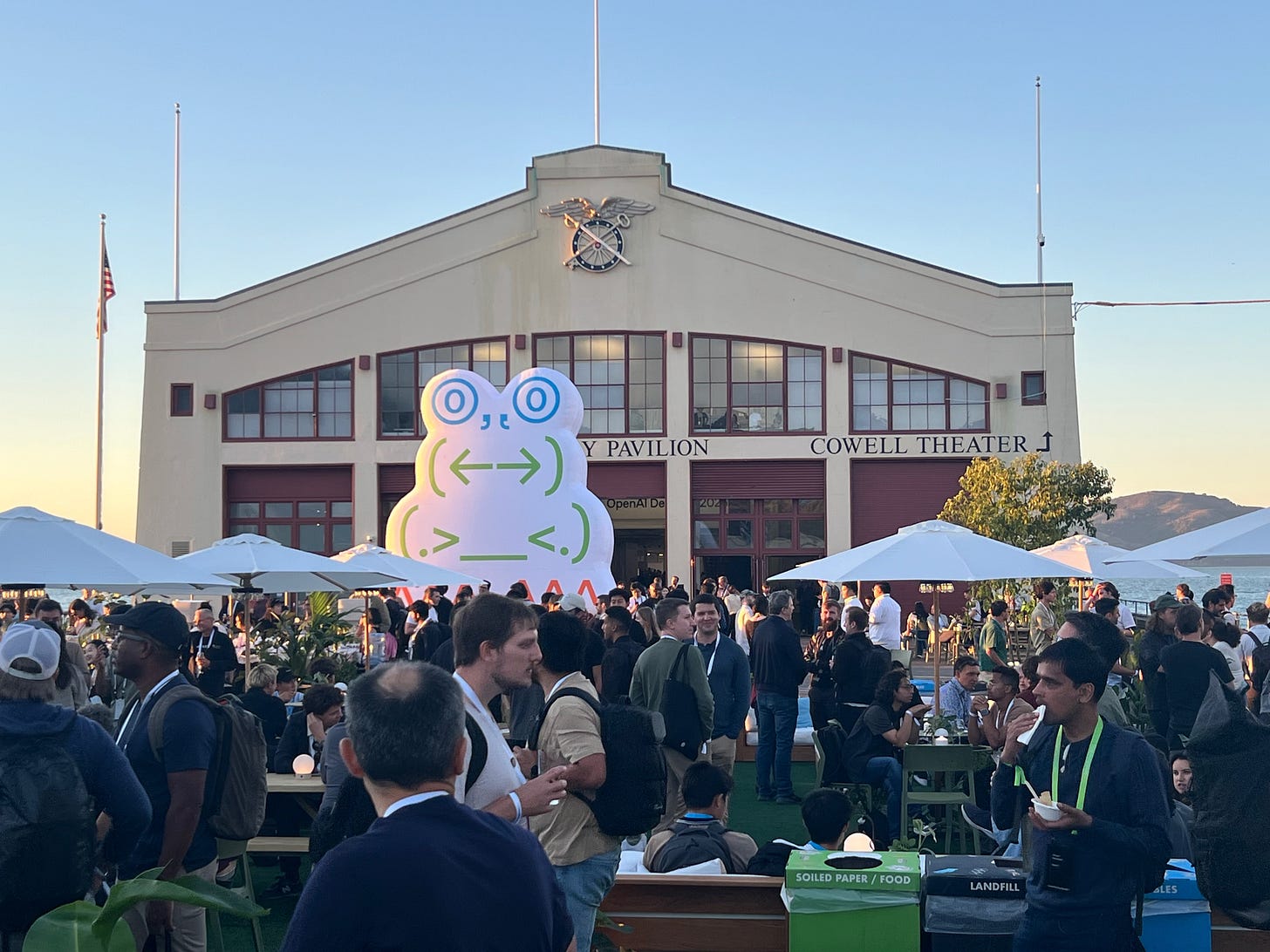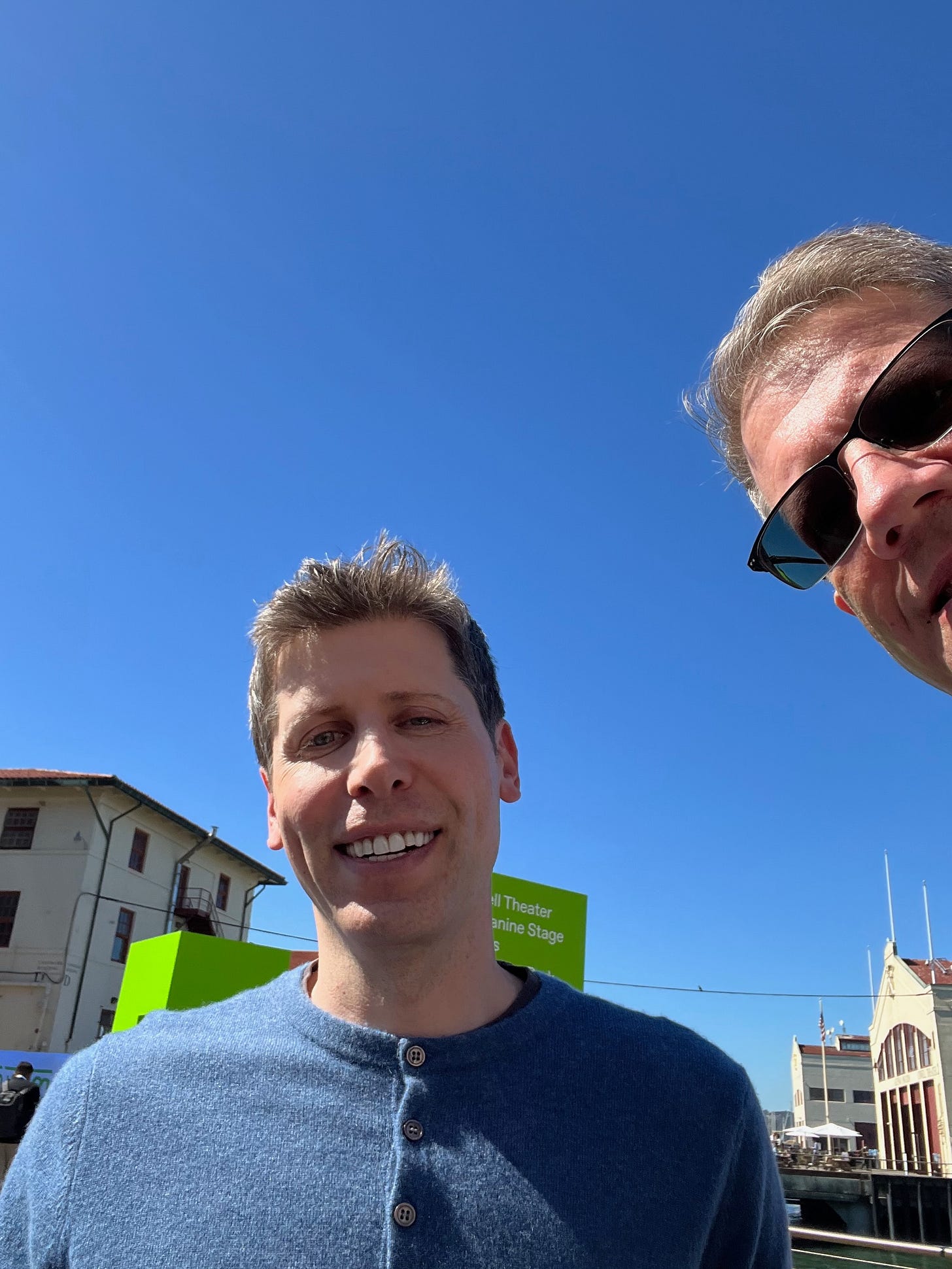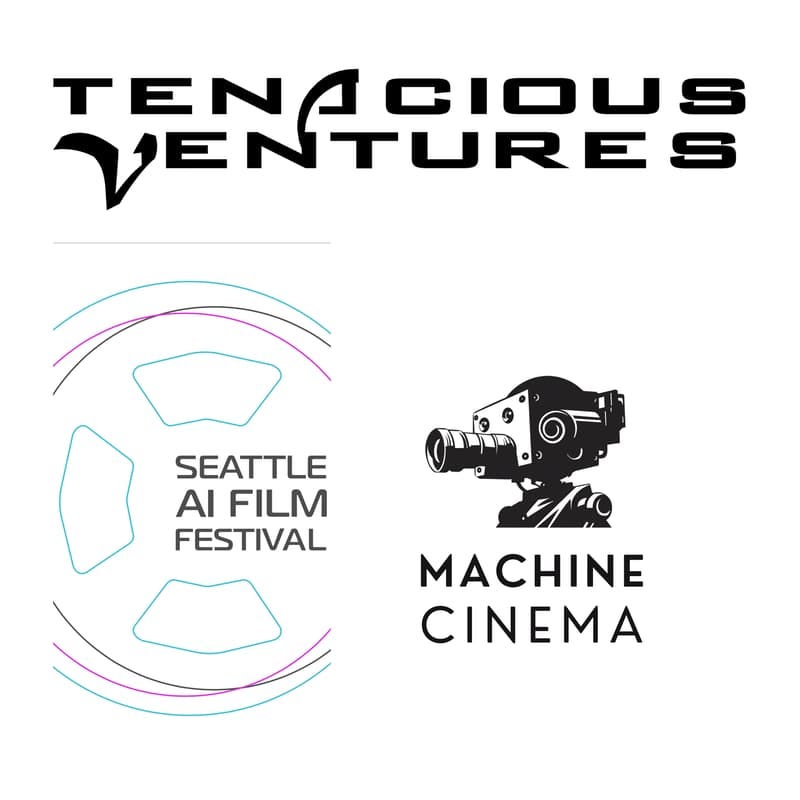This is Culture & Code, a weekly newsletter and podcast about Creativity and Artificial Intelligence. Culture & Code explores innovation across storytelling, technology and audiences to help creative professionals collaborate better with AI and each other.
OpenAI DevDay 2025: AI is Becoming Real Estate
[This is a special issue of the Culture & Code Newsletter about OpenAI DevDay 2025. The following essay concerns itself with the tidal change in computing paradigms and the long view for strategy and positioning. There are a raft of excellent show breakdowns on Substack, Tech Crunch, Verge and others if you’re interested in specific announcements or features.]
The story of computing technology has been about innovators bringing to life and scaling the new new thing. The story of the computing industry has been about dominant companies transforming the new new thing into a real estate business.
Don’t think of real estate as just buying and selling commercial or residential buildings. Real estate is about containing a physical point or a human experience within boundaries you own, and according to rules you define. A physical building and a digital user interface are both real estate because people occupy them to participate in life (ex. shopping, communicating, searching, learning etc). Granted this sounds very San Francisco, bear with me please.
If you look at the great fortunes made throughout history, most were based around (1) controlling physical or cultural touchpoints that people must occupy as part of daily life or (2) creating a iconic branded product or experience people aspire to possess. Think of Case 1 as tangible and/or reputation focused real estate. Case 2 is attention and/or mindshare focused real estate.
Controlling the Front Door
The commercial history of computing has been a real estate battle in one form or another to control the front door to the apps, the services and the content that define a given technology era: command lines vs. GUIs, Windows vs Mac, browser wars, search engines, game consoles, Mobile OS, social media, Tik Tok and so forth.
What’s more, developers are the first critical audience who must be convinced to buy into anyone’s “vision” of computing’s next wave. You can’t own or control the front door to a new computing cycle without them.
Steve Ballmer’s 1999 primal scream about developers might be over the top but he wasn’t wrong. Developers make the products, services and content people want under the new paradigm. Without them, all the corporate chess moves to control the front door wither away. Ultimately, it’s the mindshare of software and application developers that has been the single most valuable real estate for a technology company to own.
However, to paraphrase Steve, the $64,000 question facing OpenAI and every other foundation model builder is just WHO will turn out to be the most important developers and developer communities as AI matures?
Chat is the Front Door to Artificial Intelligence
Since Gutenberg, we’ve packaged information according to print publishing metaphors — pages to consume, forms to fill out, boxes to tick and other types of structured inputs for structured outputs. The web and all other comms technologies have optimized this process beyond measure. But fundamentally, the first few versions of the Internet were little more than highly efficient postal systems made digital. Classic Internet involved exchanging digital postcards and letters with each other and with groups over distance and near instantly.
Two big changes are overtaking the print publishing metaphor for packaging and manipulating information: (1) visual communication and (2) natural language processing. The page design metaphor no longer dominates how we package and distribute digital information for life, work and play. Text and pages still exist but visual storytelling and natural language are what guide interactive design, back-end systems, and content creation for a spatially aware AI Internet.
That means apps will live inside chat, which was a major DevDay presentation. Whether accessed via text or voice, the chat window is becoming the operating system OS for controlling agents, software and media. Simultaneously, that same chat window is an integrated development environment IDE. You describe what you want to build, refine it visually, and adjust a few lines of readable code when needed.
The Internet flattened telecommunications and access protocols into a single delivery chain. Generative AI is collapsing the mediums through we make content and write software into a single canvas. If you can imagine media or a workflow, you can make it with natural human language that’s every bit as powerful as formal computer language.
Consumer Focused AI Will Lead the Dance
Go to the mall and ask a few shoppers how much radio access and wide area networking, database searches, encrypted key exchanges, and digital rights management they do as an ordinary part of their day. Many, if not most, of them will give you a puzzled look that communicates more or less, “why are you asking such a crazy question?”
Ask the same shoppers how often they use their mobile device to get what they want, and just as many will give you an expression that communicates more or less “why are you asking such a stupid question?”
For a few billion people on earth, a mobile phone is a remote control for participating in digitally connected life. To live in a big city, to find what you need, to be exposed to opportunities or route around obstacles, people have built their habits and behaviors around this technology-driven capability. This medium.
Now we’re telling the same people that chat will be the remote control for a new way to live powered by agentic AI. Will similar media and digital services so valued on today’s mobile Internet be equally dominant on an ambient AI Internet? History suggests not. So what artificially intelligent media and services will capture the planet’s imagination and cause people to want to live in a genuinely new way?
THAT is my $64,000 real estate question from DevDay.
Operating Technology or Casting Spells?
Intrinsically, we know real estate is the enduring business model for the top of the technology food chain. But exactly what kind of real estate will be most valuable in an AI-native world we still don’t know. Developers? Sure. But what kind of developers to take AI mainstream and change the world? Don’t know that either.
But I do hold several truths I take as self-evident.
1.) People are exhausted.
2.) They don’t want to operate technology.
3.) People want to cast spells.
The ultimate real estate play for AI just might be a grimoire — a book of spells that helps you get by in life.
Here’s a test show called “Abracadabra is Real” that drills into the idea of words that put things in motion. Literally. Keith Ancker and I cut it a couple of months after the first Open AI DevDay in 2023. Leave a comment and let me know what you think.
Last is the obligatory Sam shot:
AI Film & Music Video Gen Jam during Seattle AI Week!
WE ARE AT 2/3 CAPACITY. LIMITED TO 60 PARTICIPANTS
Join us on October 29 (4pm-9pm) at Tenacious Ventures for a Halloween-themed creative jam where filmmakers, musicians, and AI tinkerers team up to craft spooky short films and music videos in a single afternoon.
With access to cutting-edge AI tools, you’ll brainstorm, generate, and edit your way into a frightfully fun 1-3min AI Film Trailer or Music Video that captures the eerie energy of Halloween and the experimental spirit of Seattle’s creative scene.
🛠 What You’ll Do
Brainstorm & Conceptualize
Gather in small groups to dream up a short Halloween-inspired film or music video. Think creepy characters, haunted beats, and cinematic chills.Work with AI Tools
This jam is for creators with some experience in AI video, music, or sound tools. You don’t need to be an expert. We’ll guide you through workflows on a curated set of platforms. But this isn’t a 101 class. Participants will be selected to ensure a productive, creative environment for everyone.Create & Edit
Produce your short video in just a few hours. Mix sound, visuals, and storytelling into your team’s unique spooky creation.Showcase & Celebrate
Screen your team’s final project for the group and vote on crowd favorites. 👻Top Projects Will Be Screened at VICE!
We spotlighting several of the top projects for a follow on screening at the SAIFF Halloween Party at VICE Seattle on 10/31!
🎬 Who Should Attend
Filmmakers & Creatives – Bring your editing and storytelling chops into a fast-turn challenge.
Musicians & Sound Designers – Shape the soundtrack of Halloween with AI-driven audio.
AI Tinkerers & Tool Nerds – Already experimenting? Push your workflows further with new collaborators.
This jam is designed for those with at least some hands-on AI creative experience.
💡 Why Attend
Hands-on practice with a guided set of advanced AI tools
Build a spooky short piece for your portfolio
Connect with Seattle’s creative + tech community
Celebrate Halloween in a fresh, collaborative way
🎃 EXTRA CREDIT
The Seattle AI Film Festival is a partner of the Chroma Awards, the world’s largest AI film, music, and games competition. If we generate enough separate entries from this community, SAIFF will award a $1,500 cash prize — The SAIFF Community Award — to a top AI film or music video originating from Seattle and the Pacific Northwest. Build your base version at the Gen Jam and then take the weekend to get it ready to submit!
🗓 Chroma Submission Deadline: November 3, 2025
SAIFF & Chroma Launch Video
Hot links!
Seattle AI Film Festival (SAIFF)
GenJam™️ is a trademark of Machine Cinema. Interested in hosting an official GenJam or exploring partnership opportunities? Contact affan@fantastic.day to learn more.





